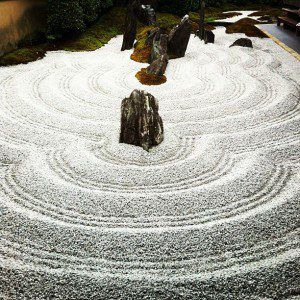
We hear a lot about the conflict between faith and science, but have you heard of how science might serve to reduce conflicts between faiths?
I discussed this possibility with Prof. Katsuhiro Kohara, Professor of Systematic Theology at Doshisha University in Kyoto, Japan. It is a subject to which he has given a great deal of attention in his various academic pursuits. Prof. Kohara has focused much of his scholarly energies on the relationship between the Abrahamic faith traditions and those in the Japanese/Asian contexts. He has also given special consideration to contemporary issues such as religious conflicts, religious freedom, and the faith and science dialogue. In addition, he has served as Director of the Center for Interdisciplinary Study of Monotheistic Religions (CISMOR) (2010-15) and Chair of the Kyoto Graduate Union of Religious Studies (K-GURS) (2013-15). He is currently serving as Director of the Center for the Study of Conscience, an interdisciplinary program involving scholars from various fields in the humanities and sciences. These various endeavors signify the import of his reflections on the topic of how science may prove strategic in overcoming conflicts between faith traditions, a subject of great import in the present day global setting.
Prof. Kohara and I spoke of long-standing tensions between what are often categorized as the great monotheistic traditions of Judaism, Christianity, and Islam, and how such traditions are often in conflict with what we label as polytheistic traditions in the Asian context. Faith traditions also struggle with secularism across the globe today, including Japan, where many Japanese people no longer associate regularly with traditional religious bodies. Nonetheless, ultimate existential questions pertaining to the meaning of life and our transient state of being persist. Here we find points of contact with traditional religious concerns, including the widespread awareness of what is often referred to as conscience.
Prof. Kohara shared with me of how Joseph Hardy Neesima, one of the founding figures of Doshisha University, a missionary, was struck by the importance of the theme of conscience in his encounters with people in the States in the nineteenth century. As modernity was leading toward the secularization of American society in many quarters, he found there to be a growing emphasis on conscience, which could serve as a cohesive and galvanizing force in the midst of increasing secularization and the waning of Christian influence in various domains. Consideration of conscience continues to shape Doshisha’s mission, as reflected in its interdisciplinary Center for the Study of Conscience.
While some might fear that an interdisciplinary pursuit of conscience involving scholars in the sciences might lead to reductionistic accounts (namely, that conscience is merely a biological, neurological state), I did not sense any such fear on Prof. Kohara’s part. Regardless of the causal forces in play, we are all players in the formation of society ethically. The scientific community can play a key role in drawing religious communities to the table of discourse for the sake of cultivating the common good. Such discourse can involve consideration of conscience from various cultural angles and its importance in our age—even in the midst of disagreements over such matters as causal forces.
Here I am reminded of the story of the Buddha when interrogated with questions of origins: if one is struck with arrows, one has no time for asking questions of who shot the arrows and from which direction; rather, one must work quickly to remove the arrows before one dies. From a pragmatic perspective, regardless of how we come to such causal conclusions regarding the formation of conscience involving brain states, upbringing, religious phenomena, and the like, we must all bring ethical considerations involving what we call conscience to bear on important topics for global well-being in our tenuous, fractured age. In fact, psycho-somatic, scientific considerations related to conscience can play an important role in knowing what makes us tick, even if they should not dictate to us what we ought to do in addressing ethical deliberations.
One of the matters Prof. Kohara and I discussed was the importance of the individual conscience in engaging the State. In Japan presently, it has been determined that students must undergo moral education. The fear exists that this development will cultivate nationalistic sentiments and convictions (for varying assessments, refer to the following link to various articles on the subject of “moral education” in Japan: http://www.japantimes.co.jp/tag/moral-education/). While patriotism has its place in any given culture, it is important that moral consideration be given to the significance of dissent by the individual exercising their conscience.
Times have certainly changed over the past few decades. The Japanese fear the growing imbalance of power in Asia, specifically due to China’s increasing military prominence, and also North Korea’s increasingly erratic behavior, among other concerns. In addition to the move toward moral education in the public school curriculum, debate is occurring as to whether or not Japan should rewrite its pacifist constitution that would allow it to transform its military from self-defense capabilities only to conventional forces. Years ago, Japan changed course on the singing of the national anthem and raising of the nation’s flag at important public school assemblies. The concern existed then and now that such changes, including the determination to include moral education in the curriculum, could indoctrinate the public in a nationalistic and militaristic direction. Some teachers have protested such moves, in keeping with their presumed individual rights to express their consciences; at least in some cases, they have been punished and have taken their cases to court.
In my estimation, Prof. Kohara’s interdisciplinary work on the theme of conscience might not only serve to resolve conflicts between religious groups, but also might cultivate appropriate conflict where religion can serve as a check on state power for the common good. The State—whether Japanese or American, British, German, Chinese or Russian—must come to terms with the fact that its rule is not absolute; the State must always account for the precious, priceless, though fragile quality of individual human freedom. If science and religion can work together to cultivate the importance of a clear conscience for society’s well-being beyond mere market and military benefits, we will all be able to sleep better at night.[1]
_______________
[1]While a vitally important field of research, it is also important to complement the emphasis on conscience with other considerations. Otherwise, it might suggest that the last refuge of religion is merely an inner state(s) of moral awareness. Attention to theology and metaphysics in addition to scientific analysis must come into play. A future post on this subject will attend to these domains. The post in question will also seek to safeguard against viewing conscience in merely subjective terms—a matter of mere personal opinion in moral dress.













